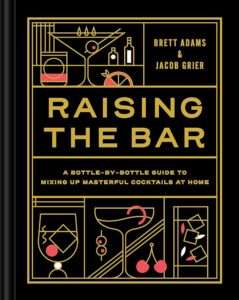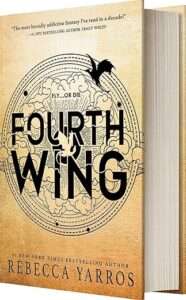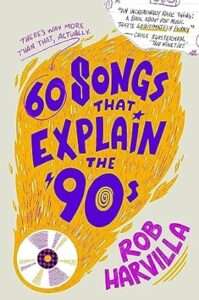This Year's Libertarian Gift Guide: 23 Ideas for 2023
In today's innovative economy, there's no excuse for sending a gift card. The staff at Reason is here with some inspiration.

There's a gloomy refrain heard every year around this time. It goes something like this: "I don't know what to get [insert person who is hard to shop for]," they say. "[Difficult person, probably a dad] already has everything."
I'd like to begin this year's gift guide with something that will delight the Catholic Reasoners: I have a confession. I, too, have invoked that sorry justification over the years when struggling to conjure suitable gift ideas. But it's an excuse that doesn't hold much water in an era of ever-increasing innovation, abundance, and weird, niche products that the difficult person in your life definitely doesn't have yet.
Let's start with the low-hanging fruit: If you're reading this guide, there's a chance you like Reason. Should your nearest and dearest also like Reason—or should you want to convince them to—you can give the gift of a subscription: one year for $14.97, two years for $25.97, or three years for $37.97. It's a particularly good suggestion for shoppers who struggle with procrastination. You can print out the proof of order and put that baby in an appropriately festive gift bag or box.
For the Reason die-hards in your life, gift them some swag. We have men's and women's apparel, phone cases (for iPhones and for the people in your life who still refuse to get an iPhone), mugs, and ceramic ornaments. I will be sending my precious niece our toddler tee. Start 'em young. (If my sister is reading this, I'm sorry for ruining the surprise.)
And, thankfully, there are a plethora of offbeat, useful, zany, pragmatic, and/or entertaining items that you should consider for those in your life who you would otherwise get a Visa gift card. Go forth. —Billy Binion, associate editor
For the enterpriser who is really sick of Monopoly:

Long have libertarians complained that the eternal smash-hit board game Monopoly neither depicts free market capitalism accurately nor encourages any useful business skills aside from making lopsided real estate trades with property owners down on their luck. Is there, at long last, any game that portrays business as what it more closely resembles in the real world—inventive and fun?
I found the answer, unexpectedly, at a homeschooling convention in Virginia, where an engaging fella named Elliott Eddie was hawking his own invention that he (appropriately!) conjured to life via a Kickstarter campaign: The Entrepreneur Game. It has become the go-to board game for me and my 8-year-old.
Every session is different, on account of players having to start by creating a new business—either home-based or brick-and-mortar, each coming with different costs and payouts. A crucial caveat: All the other players have to agree the venture sounds plausible. (That shouldn't be too hard when considering, for example, that there is a real market for Bob Ross Chia Pets. You're welcome.) You can then add or subtract or trade businesses from there, in the knowledge that at the finish line, the bank will buy them back. Then you count and compare winnings.
Along the way there are mortgages, potential lawsuits, marketing snafus and bonanzas, competitive jingles, and enough vagueness here and there in the rules that players are impelled to—yes!—invent interpretations and workarounds. Your 8-year-old can and will beat you, and get you thinking that yes, maybe your neighborhood does need that ice cream parlor/lending library across from the park. —Matt Welch, editor at large
Buy The Entrepreneur Game for $49.99

Monopoly Deal—a card-game take on the classic board game—is a fast-paced battle of tradeoffs and risks that in many ways is more enjoyable than its namesake.
Unlike Monopoly, where players simply squat on their properties and wait for someone else to stumble into owing rent, Monopoly Deal puts the onus on each would-be tycoon to earn their big paydays. The game includes three types of cards: money, property, and action. The former two are self-explanatory; the latter type of card allows you to, say, act as the town debt collector (boo!), force people to pay you rent on the properties you own, or even steal properties from other players. (There is no due process, though there are cards that allow you to "just say no" to another's action.) Collect three sets of property cards to win the game.
Something else that sets Monopoly Deal apart from the original: This game runs around 15 minutes as opposed to multiple eons. Like in the marketplace, it moves quickly, and bold risks are sometimes rewarded with the destruction of your competitors. But they can make you a target as well. Earning a big rent payment requires some basic strategy and more than a little luck of the draw. —Eric Boehm, reporter

Forget Monopoly or Catan. Battle Sheep (like Battleship, but not) is the perfect game for the particularly enterprising kid. In the board game, players attempt to dominate (or, erm, baa-minate?) a hexagon-tiled board by placing rows of color-coded sheep. While Battle Sheep is technically aimed at kids and younger teenagers, don't let its simple rules deceive you. The game requires a good bit of strategic know-how and provides ample opportunity to sabotage fellow players, making it an enduring favorite at game nights.
Bananagrams is another classic game that I just can't get enough of. The basic premise is something akin to Scrabble on Adderall, and each game reliably brings 15 or so minutes of fast-paced, occasionally sweat-inducing fun. The whole game fits in a small banana-shaped pouch, making it the ideal stocking stuffer for budding wordsmiths. —Emma Camp, assistant editor
For the home chef who appreciates a good shortcut:

It wasn't long ago that people depended on mammoth mills to produce their flour supply. Either that or you were grinding grains via mortar and pestle, which means it's not unlikely you would've paid for your carbs with an undiagnosed case of carpal tunnel.
Fast-forward a little over a century: I can make my own flour without lifting a finger—and it's significantly more nutritious than what you'd get at the store.
If you want homemade bread and other baked goods, get yourself a grain mill. There are relatively cheap (and not-so-cheap) options. But my husband recently gifted me the All Metal Grain Mill attachment by KitchenAid—meaning I can grind my own grains without even worrying about another appliance crowding the kitchen counter. (Merry early Christmas to me!)
While I'm glad industrialization has made it possible to buy a few pounds of enriched flour at any grocery store whenever I need it, I'm also grateful for the innovation that paved the way for my electric grain mill, allowing me to grind my own flour at home—and without breaking a sweat. —Alyssa Varas-Martinez, assistant editor
Buy the All Metal Grain Mill KitchenAid attachment for $114.99

Gone are the days of expensive eggs (for now, at least). Since reaching a high of $4.82 in January, a dozen Grade A eggs will now run you $2.07 on average, according to the U.S. Bureau of Labor Statistics. The main driver of that decrease is the poultry industry's recovery from a massive avian flu outbreak (despite politicians and pundits blaming "corporate greed" and "price gouging" for the high prices).
The confused economic commentary aside, what's an egg lover to do about this again-affordable stock? Invest in a DASH Rapid Egg Cooker, of course.
The DASH cooker can whip up six different styles of egg in minutes, from hard-boiled to poached. It's much faster than stovetop methods and delightfully consistent. A measuring cup tells you exactly how much water you'll need to add to the cooker to achieve your desired result, and cleanup is a breeze. No more wrangling bulky pots of boiling water.
It's hard to mess up with the DASH cooker. But even if you crack a few eggs in the process, that won't hurt your wallet quite as much as it once would have. —Fiona Harrigan, associate editor
Buy the DASH Rapid Egg Cooker for $16.14
For the one who's armed and makes it fashion:

I vary my concealed carry technique depending on dress and setting, but I often default to pocket carry for the sake of comfort. For years, I relied on a DeSantis Nemesis to hold my Springfield XDS 3.3 .45ACP upright and to remain in place when I draw. But while the Nemesis is good, it didn't keep the pistol butt from printing through my pants and even wearing light spots in the fabric. And that just won't do.
But then DeSantis made something I had contemplated as a do-it-yourself project—it added a flap to the holster. The result: the Super Fly.
Held by a hook-and-loop fastener, the rectangular flap flips for righties and lefties. It blurs the outlines of the pistol so that it looks like you have a flat wallet in your pocket. The flap also helps retain the holster so it doesn't exit the pocket with your pistol. When gifting a Super Fly, be sure to specify the make and model of the recipient's gun for proper fit.
Like all pocket holsters, the Super Fly doesn't necessarily look super fly with skinny jeans. But then, nothing does. —J.D. Tuccille, contributing editor
Buy the DeSantis Super Fly for $57.99

I was never a knife guy. That changed when I entered the wonderful world of fatherhood and found myself opening an incredible amount of boxes. (No one warns you about that part.) Toys! Diapers! Abundance abounds!
Thankfully I found the ideal everyday carry knife—the Drifter by Columbia River Knife and Tool. Even better: It won't make you look like you're cosplaying as Davy Crockett or a Navy SEAL, so the Florida dads of the world can sleep well knowing it will pair just fine with, say, some trusty nylon fishing shorts.
This knife is both well-made and affordable, making it a perfect gift for someone who likes a good blade—or who might find themselves needing one in the very near future. —C.J. Ciaramella, reporter
For the one with their head in the clouds:

What do space travel and self-care have in common? Answer: red light therapy.
The mystical powers of red light came more sharply into focus after NASA found it helped heal astronauts' wounds. Now red light therapy (RLT) is sweeping the world of wellness, touted for its ability to reduce fine lines and wrinkles, ease muscle soreness, improve sleep, help with inflammation, and much more.
While RLT used to require expensive lasers, innovation has made the treatment accessible for folks who aren't astronauts or wealthy celebrities. The HG300 Red Light Therapy Device by Hooga is a great gadget for home use with its medical-grade red and near-infrared light that delivers quality treatment for those of us who don't have NASA's taxpayer-funded budget.
In other words, this is the perfect gift for just about everyone, whether it's your athletic friend looking to curtail recovery time, your dad who wants relief from his arthritis, or your significant other who obsesses a little too much about her crow's feet. We paid for NASA's research, after all, so why shouldn't we all benefit from it? —Kelvey Vander Hart, communications specialist
Buy the HG300 Red Light Therapy Device for $159

Someday humans might be able to gift their futurist loved ones travel packages to space for the holidays. For now, the new book A City on Mars is a decent substitute.
Authors Kelly and Zach Weinersmith deliver an amusing yet sober take on the prospects of populating the solar system. The prose is broken up by quirky diagrams and cartoons by Zach, creator of the popular Saturday Morning Breakfast Cereal webcomic and illustrator of Bryan Caplan's Open Borders.
The Weinersmiths make clear they are not bullish on the timeline for space settlement. It will probably happen eventually if our species exists long enough—but not anytime soon.
A City on Mars asks not only how humans would get to Mars but, just as importantly, how we might breathe, eat, manufacture, and procreate there. There are many more questions than answers.
Libertarians will be especially interested to read about the economic, legal, and geopolitical implications of a Mars colony. Even if we can do it, will governments let us? —Adam Sullivan, digital marketing specialist
For the person who prefers to drink their vice(s):

Too late for college, where I drank the likes of Pabst and Labatt Blue, I discovered that beer came in a wide variety of styles, many of which actually tasted good. More recently, my appreciation for what used to be called "tropical" drinks has undergone a similar transformation, thanks largely to Jeff Berry, whose years of cocktail detective work uncovered lost recipes that appear, alongside his own innovations, in Beachbum Berry Remixed, which combines two earlier books by the same author.
Berry's recipe book is also a history book (who doesn't love a two-for-one deal?) that explains how concoctions created by tiki pioneers like Victor Bergeron (Trader Vic) and Donn Beach (Don the Beachcomber) became wildly popular and then, perhaps inevitably, bastardized to the point that they barely resembled their much tastier ancestors. (Currently accepting suggestions for my tiki alter ego, although I'm partial to Jake the Snake.)
Authenticity in this context is a tricky concept, since tiki drinks evoke a world that never existed: a fanciful amalgam of Caribbean and Polynesian elements unified by the appeal of a tropical paradise that could be inhabited in the middle of the city for the price of a drink or two amid ersatz palm trees, water features, bamboo accents, and oversized idols. But the tiki renaissance exemplified by Berry's archaeology of mixology proudly strives for a kind of campy authenticity that is best enjoyed while sipping a well-crafted mai tai or zombie to the strains of Martin Denny or the Tikiyaki Orchestra. —Jacob Sullum, senior editor
Buy Beachbum Berry Remixed for $29.95

Second only to Reason editor Peter Suderman's cocktail newsletter, Raising the Bar: A Bottle-by-Bottle Guide to Mixing Masterful Cocktails at Home by Brett Adams and Jacob Grier is my go-to gift this year. In fact, it could be considered the libertarian's mixology manifesto. Just as libertarianism espouses the value of individual freedom and minimal interference, this book champions a "less is more" approach to the home bar. It's a toast to personal liberty in cocktail form.
Instead of coercing readers into buying an overwhelming array of expensive, single-use ingredients—the mixological equivalent of a bloated government—Adams and Grier advocate for a streamlined, efficient bar that maximizes personal choice and utility. Each bottle becomes a versatile tool in the mixologist's kit, mirroring the ideal of versatile, multifunctional individuals who contribute to society in numerous ways no matter where they come from or what their skills are.
Raising the Bar equips cocktail enthusiasts and beginners alike with the fundamentals of a good drink, allowing them to innovate without the need for a central planner dictating their every move. Each new bottle introduced is like a new idea being shared in the marketplace of cocktails, expanding the drinker's horizon with each chapter. The book's practicality and focus on using what's already in stock makes it the perfect companion for those who value freedom, simplicity, and the joy of making the most out of what you have—whether that's in life or in your liquor cabinet. —Veronique de Rugy, contributing editor
Buy Raising the Bar for $19.96

The average person spends about $2,000 a year on coffee. (With inflation, that may soon be, uh, even more.) For the same cost, you could buy a semi-reliable used car, two David Yurman diamond necklaces, or this giant inflatable game of human whack-a-mole. In other words, your coffee-loving loved ones are probably missing out on a lot. So it's time to help them ditch the $6 caffeine runs by gifting a chic, economical brewing tool that helps make an amazing cup of coffee every time.
Don't be fooled by the Origami Coffee Dripper's simple facade and relatively low price. It comes to us from Japan's Gifu Prefecture, which is known for its over 400-year history of ceramic making. As its name would suggest, the dripper is indeed inspired by origami, the Japanese tradition of paper folding. But that shape is not just for show: The 20 origami-like folds help you control the flow rate of the water and create air channels to make the perfect cup of coffee. And it comes in several colors, so you can personalize it a bit for the recipient. Cheers! —Katarina Hall, staff editor
Buy the Origami Coffee Dripper for $39.95
For the person whose vice requires more…discretion:

Holiday traveling—or any long-distance sojourn—can be a buzzkill. Once you reach your destination, chances are you may need some help winding down. A problem: When that winding down comes courtesy of a strong scented herb, it's not always easy to avoid scrutiny.
Take heart! The Firedog Smell Proof Bag is a stylish, polyurethane leather pouch that allows you to discreetly bring your bud wherever—without getting looks from your nosy mother-in-law or the police K-9 at the airport. —John Carter, producer
Buy the Firedog Smell Proof Bag for $11.99

Consumers of illicit substances should have at least two things: a knowledge of their constitutional rights and a stylish way to covertly store their favorite flower, concentrates, edibles, and accessories.
Enter Tulip.
This seven-piece, lockable stash-box set includes multiple jars, doob tubes, and a tray, so you can roll up almost anywhere. Boveda humidity control packs are included which help keep your flower fresh. Tulip comes in a plethora of colors, from vibrant pinks to shades of green and, Reason's personal favorite, orange.
Best of all, the lock provides peace of mind if you get pulled over in an illegal state like I did. You can tell the cops to "get a warrant"—Fourth Amendment, anyone?—and then get on with your day. —Bess Byers, digital marketing specialist
Buy the Tulip 7-piece set for $195
And for the person whose vice is being a couch potato:

As I was preparing the first edition of Reason's Sindex this summer—compiling data on all the various ways prices on our favorite vices have risen in the last few years—one factoid was most shocking to me: The price of fancy new TVs had gone down. While prices economy-wide have risen by 18.8 percent since January 2020, according to the Bureau of Labor Statistics, prices for TVs dropped 21.3 percent. This last year alone is a similar story: Economy-wide prices have gone up 3.2 percent, while TV prices have dropped 9.4 percent (though the cost of watching live programming on that TV has gone up 5.5 percent).
Whether your current TV is just a little too old or a little too small, there's never been a better time to buy a new one (except, if trends continue, next year). I'm no audiovisual expert, but I've been satisfied with my Samsung TV: The 55-inch variety for $350 seems like a great deal. For those living in 2023 and looking for a smart TV, a 43-inch Hisense with Roku TV has worked well as my house's second option. But if you choose to look for something else entirely, chances are the TVs are better, and cheaper, than they were just a few years ago. —Jason Russell, managing editor
Buy the 55-inch Samsung for $349.99
Buy the 43-inch Hisense for $309.86

Looked at one way, Christopher Nolan's Oppenheimer, which is now available for purchase on 4K Blu-ray, might seem like just another biopic, the story of an important man, J. Robert Oppenheimer, on his tortured quest to lead a team of scientists toward building the atom bomb.
But with its hopscotching timelines, shifting image ratios, and black-and-white-to-color switchbacks, it's very much the product of Nolan's distinctive stylistic tics. It's also the fulfillment of many of the themes that have defined the director's career, from humanistic wonder at what science can do to fears of unchecked mob campaigns and global nuclear destruction.
Not only is it one of the best-executed, most ambitious movies of 2023, it's one of the most searingly prescient, as it serves as a warning about the fragility of human existence in a war-filled world with the capacity to destroy itself. So print out a picture of Cillian Murphy, wrap those sculpted cheekbones in a box, and surprise your friends or family with a digital copy of one of this year's most-hyped films. —Peter Suderman, features editor
For the one who thinks the Allen wrench was named after a man named Allen:

You may have heard it before: those words that dredge up a mix of anxiety, confusion, and morbid fascination.
Someone you know is on Pinterest. She (or he, no shame) is lost in the sparkly abyss of DIY projects that promise to make a home look like a Crate and Barrel catalog. Disaster might be near. But it doesn't have to be.
Inspired by my apartment hopping with no one to help me hang my floating shelves—my now-husband was nowhere to be found—you can gift the perfect, newbie-friendly toolkit that won't intimidate the one who doesn't know a hammer wrench from a socket wrench. (I think there's one named Allen too?)
Worst case scenario, the recipient can offer a tool or two to the neighbor, friend, or significant other they draft to assist them with their projects. It fits snugly into any storage space and, better yet, comes in a variety of colors, so your loved one can really channel the decorative spirit. Happy tinkering! —Regan Taylor, video editor
Buy the Cartman 39-Piece Household Kit for $21.99
For the one who needs to read another book:

Ever wonder what it would be like to go to a war college for dragon riders? If you happen to have contemplated that very specific scenario, Rebecca Yarros has you taken care of with her New York Times bestseller, Fourth Wing. You'll have to forgive some of the "enemy-to-lover" romance clichés, but this book is a veritable buffet of the best elements from everyone's favorite fantasy franchises—like Harry Potter, Game of Thrones, and The Hunger Games.
Violet Sorrengail was supposed to be a lowly scribe, spending her days reading and studying. But alas, her mother had other plans—namely, to send her Basgiath War College. As a student there, you have two choices: Bond with a dragon or die trying. Unlike Game of Thrones, however, once riders successfully sync with their dragons, they can communicate with them telepathically. Think of the possibilities.
Every boarding school, real or fictional, has its cliques. But here we see those fractures fade after it becomes clear the school's paternalistic leadership is concealing some big secrets from the student body. Without giving away too much, you can imagine how angsty young adults—armed with dragons, no less—might react to being deceived. It's a wild ride, pun intended.
If you can't get enough of Fourth Wing, you're in luck: The sequel, Iron Flame, recently hit the market, and there are already plans for Amazon Prime to adapt the series into a TV show. At this rate, your nearest and dearest have probably (hopefully?) accepted they're not getting a Hogwarts invite. And they may need to read another book anyway. Thanks in part to capitalism, there are myriad other fantasy worlds you can get lost in—just a few Amazon clicks away. —Natalie Dowzicky, deputy managing editor

The Gen Xer in your life probably has some nostalgia for books on dead tree. And he definitely has nostalgia for the music of his formative years. So get him 60 Songs That Explain the '90s in hardcover.
It's newly released, so he doesn't have it yet. It was born from a podcast, but it's different enough to merit a purchase on its own. In addition to some very solid music criticism from The Ringer's Rob Harvilla, it has essayistic meditations on selling out, censorship, and the eternal allure of music that makes your parents uncomfortable—even for people who are now parents themselves. —Katherine Mangu-Ward, editor in chief
Buy 60 Songs That Explain the '90s for $27.00

Modern American libertarian ideas and thinkers have been winning converts and quietly changing the world for seven decades now—but that didn't mean the bastions of academia and publishing were apt to give them much respect.
That's been slowly changing for the better. This year, Stanford University history professor Jennifer Burns has followed up her smart and often sympathetic 2009 biography of Ayn Rand, Goddess of the Market, with the first detailed, serious, comprehensive biography of libertarian economist, polemicist, and adviser to the powerful, from the U.S. to China to (yes) Chile: Milton Friedman.
In Milton Friedman: The Last Conservative, Burns deals fairly with the controversies surrounding the man. She also does so with a clear-eyed understanding that the libertarian belief in freedom and choice—particularly for their ability to create wealth and improve standards of living—is sincere and based in a serious set of theory and history. That books that treat libertarian thinkers with this sort of deeply-rooted sympathetic understanding are gaining traction should bring holiday cheer to any libertarian. —Brian Doherty, senior editor
Buy Milton Friedman: The Last Conservative for $29.49
For the one with niche technology needs:

Holiday shopping for the metalhead in your life is easier said than done. Odds are their closet is already overflowing with Slayer shirts, and their jean vest couldn't fit even one more patch. So, this Christmas season, consider giving them the gift of Heavys H1H headphones.
Many a metalhead is left ill-served by traditional headphones that collapse thick, layered walls of sound into a tinny, digitally congealed buzz. Enter the Kickstarter-launched Heavys, which promise to remedy these woes with technology "engineered for heavy metal" and meant to "mimic live music." We've got headbanging. We've got entrepreneurship. We've got headbanging entrepreneurship.
The over-the-ear, Bluetooth-enabled Heavys offer a, well, heavy bassy sound that is still nimble enough to allow for vocals and high-pitched guitar solos to be heard clearly above the fray. After recovering from some potential sticker shock, the buyer can soothe themselves knowing that only in a world of increasing wealth and choice could such a niche product for a marginalized audience sell at a luxury price.
Also comforting: In the end, this is really a gift for the giver, thanks to Heavys' noise-canceling ability and long battery life. Come Christmas morning, the recipient can blast Cannibal Corpse to their heart's content while you drink in the dulcet tones of wrapping paper ripped to shreds. It's only up from here. —Christian Britschgi, reporter
Buy Heavys headphones for $249

Are you overseas, perhaps in a country ruled by a hostile regime? Are you involved in research that, though innocent, an internet service provider might find troubling? Or do you just want to be able to surf the web without it being anyone else's business? Then consider a virtual private network (VPN)!
VPNs encrypt your internet traffic by routing it through a separate server, obscuring the contents of your online activity to your internet provider and rendering any potential search warrants ineffective (though one should never assume that any method is completely safe from the National Security Agency, natch). There are a ton of options, but not all VPNs are created equal: Troublingly, some free or cheaper options keep logs of customer activity that can be subpoenaed.
ExpressVPN strikes a good balance between speed and security. It doesn't keep logs, and the company is headquartered in the British Virgin Islands, which has very advantageous data privacy laws. Surf's up. —Joe Lancaster, assistant editor
Buy ExpressVPN for $8.32 a month
For the one who needs a reminder we're living in a parody:

Have you ever wanted to give the gift of inspiration? This year, you can do just that when you send your loved one a personalized message from a man who has walked the moon, led the U.S. to Olympic table-tennis gold, scaled the Empire State Building with no harness, and set the Guinness world record for spending the most campaign contributions on Botox and OnlyFans. Quite the bang for the buck.
Give the gift of George Santos.
Of course, Santos has done none of those things (with the possible exception of the latter, should Guinness World Records want to investigate). The erstwhile Republican congressman was recently expelled from the House of Representatives amid criminal allegations that he stole campaign funds to treat himself to designer shoes, gambling excursions, and, yes, Botox and OnlyFans.
But Santos is not in prison (yet). After all, he is innocent until proven otherwise. And he is spending his newfound unemployment as any ousted politician might: by making personalized videos for customers on the video-sharing app, Cameo. He may not have the bloated resume he once promised, but he does have the hustle. For a preview of Santos' portfolio, you can watch the video he made for Sen. Bob Menendez (D–N.J.)—who is also facing some, er, seedy corruption allegations—courtesy of Sen. John Fetterman (D–Pa.). You have to admire the petty.
Not long ago, Santos was charging $200 per video. That has quickly risen to $500—a steep price to pay, yes, but that's the market at work. And while it may be a hefty fee, you can rest assured that the laugh it gives the recipient will be more valuable than anything the public was paying Santos to do in Congress. —Billy Binion, associate editor


Show Comments (39)